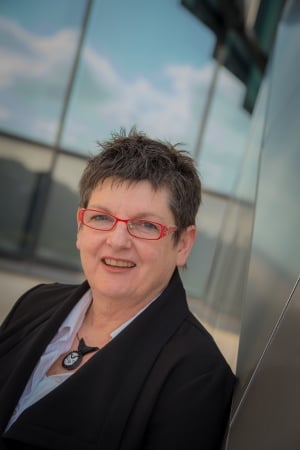REDI makes a difference in education research
Research news
A long period of teaching visual art to secondary students in Alice Springs and Tasmania contributed to Julianne Moss’s passion for education research.
It especially sparked her interest in discovering how best to meet the needs of individuals in a school community.
She went on to complete her PhD on policy, practice and inclusive schooling at Deakin in 2000, and has since become one of Australia’s most respected education researchers.
In her latest career milestone, Professor Moss has just been appointed inaugural Director of Deakin’s Research for Educational Impact (REDI) Strategic Research Centre.
A former President of the Australian Association for Research in Education, she has edited two visual methods books and contributed to over 100 publications, including journal articles, book chapters, government reports and conference papers. Just published is “Visual Research Methods in Educational Research,” co-edited with Prof Barbara Pini from Griffith University.
As Director of REDI, Professor Moss is determined to raise the capacity and impact of Deakin’s already internationally-recognised educational research.
“REDI is looking to be a leading national and international centre that is keenly interested in the impact of educational research in communities and a world shaped by new knowledge,” Professor Moss said.
“We are a national leader in several fields of education research, including science and maths education, and educational policy and governance, and have created the new SRC to build on the achievements of our previous Centre for Research in Educational Futures and Innovation (2009-2015).
In the 2015 Excellence in Research for Australia (ERA) ratings, Deakin gained a score of 4 out of 5 for Education (above world standard), illustrating the capacity, reputation and impact of its education researchers.
Professor Moss noted that REDI has been designed around four distinctive programs that address the key contemporary education issues. Each program is being led by a renowned scholar, who will collaborate with over 40 REDI researchers from disciplines across the University.
Two new eminent researchers have been recruited to join REDI in early June to lead two of these streams.
Professor Amanda Keddie, from the University of Queensland, will lead the stream “Children, Young People and their Communities,” while Professor Catherine Beavis will return to Deakin from Griffith University to lead the “Curriculum, Assessment, Pedagogy and Digital Learning” stream.
The University’s own Alfred Deakin Professor Jill Blackmore will lead “Education Policy and Governance,” and Professor Russell Tytler will lead the “Science, Technology, Engineering and Mathematics Education” (STEME) stream.
“Nested inside REDI is the Centre for Research in Assessment and Digital Learning (CRADLE), which will focus on investigating quality assessment practices in higher education and the potential of emerging digital environments to enhance assessment practices across the education spectrum,” explained Professor Moss.
She noted that new understanding about how individuals learn, combined with the opportunities offered by digital learning, has seen the research knowledge base expand exponentially over the past decade.
“One of our key goals is to ensure that our knowledge is translated into practice and that we ask the big questions of educational research,” she said.
“Our hallmark is distinctive and quality research that generates new knowledge and ‘research for education,’ rather than ‘research on education.’”
As one example of Deakin’s education research footprint, a group led by Professor Tytler has trained hundreds of science and maths teachers on the use of representational images to develop higher order thinking skills and increase student engagement.
Led by Associate Professor Peter Hubber, the STEME program has just received a $700,000 grant from the Victorian Government to lead a STEM in schools Catalyst project in 30 low socioeconomic status schools across the state. This continues a decade of work with hundreds of teachers around the country.
“At the other end of the spectrum, our researchers work with cross-national networks in Asia, Europe and Canada, to engage in research on educational governance, organisational change and policy, as well as global restructurings of educational work and workplaces,” added Professor Moss.
She explained that REDI’s activities are underpinned by critical collaborations with key stakeholders, including international scholars, Government, industry and schools. She also emphasised the strong equity principles that underpin the Centre.
“When I was a teacher, I gained an understanding of the importance of supporting all learners, including those on the margins, who may have different cultural backgrounds, disabilities or high learning needs,” she said.
“Today, we are lucky to have the opportunities of a digital environment, but it is also critical that we have a social justice approach and look to equity principles. It is very satisfying that REDI is addressing these challenges and influencing policy that will affect our nation in the future.
“It is crucial that Australia invests in a strong culture of education and an understanding that education is lifelong, if we are to maintain and meet expectations for our futures.”
Share this story
 Director of Deakin’s Research for Educational Impact SRC, Professor Julianne Moss.
Director of Deakin’s Research for Educational Impact SRC, Professor Julianne Moss.
